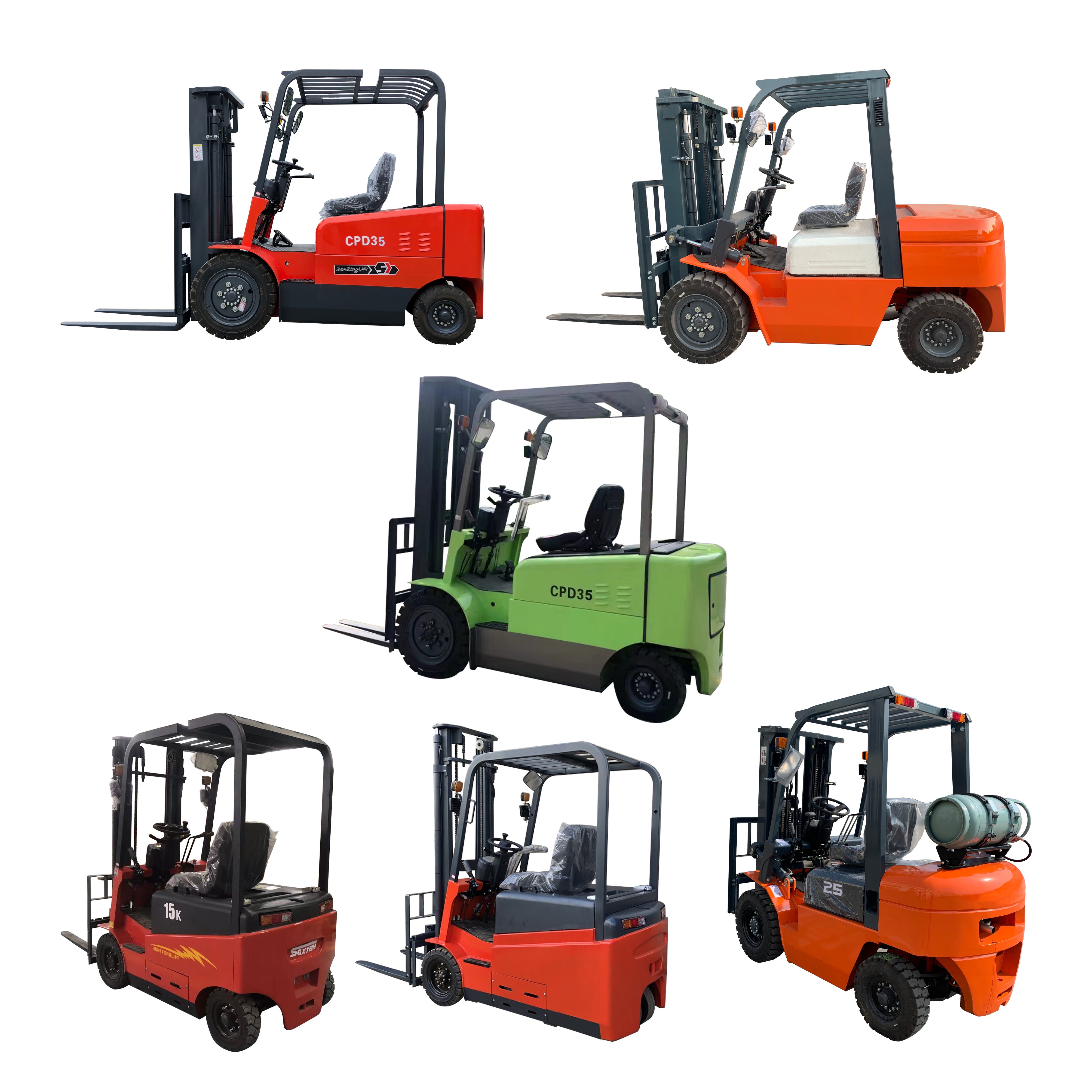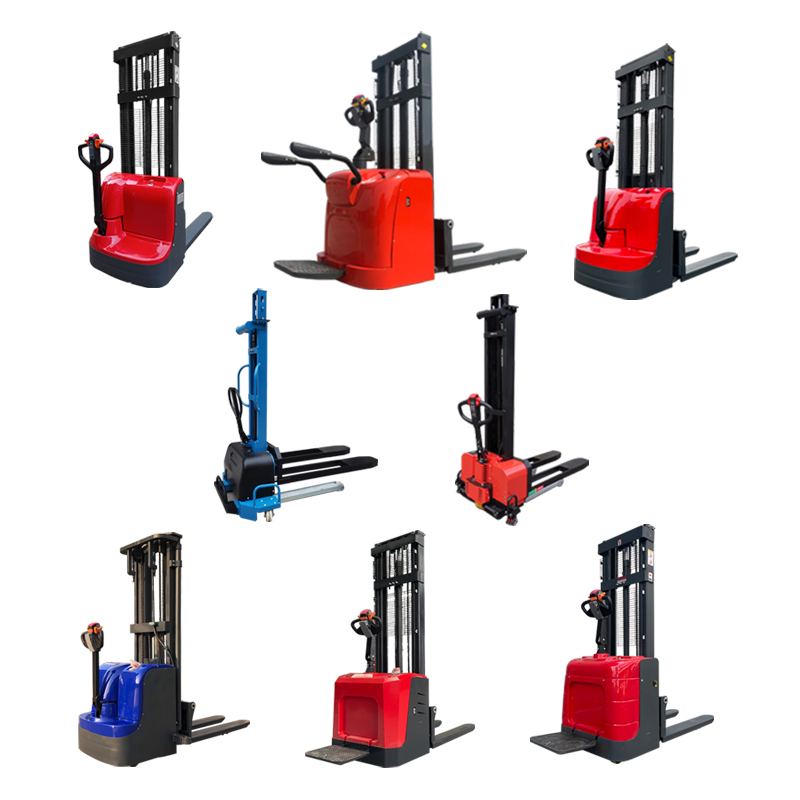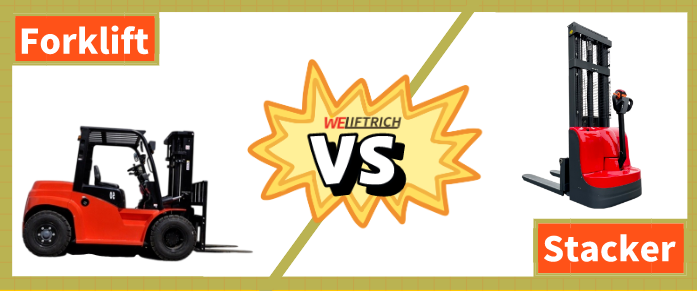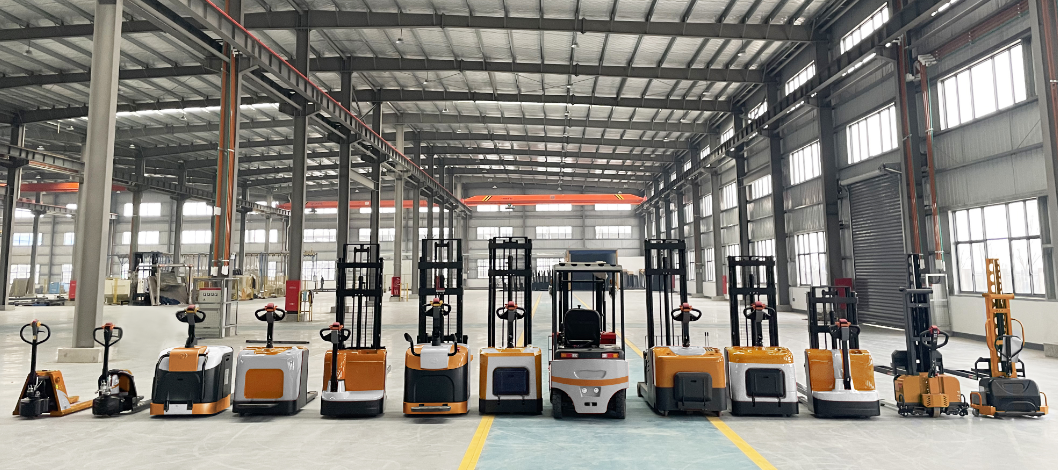- All
- Product Name
- Product Keyword
- Product Model
- Product Summary
- Product Description
- Multi Field Search
Views: 1135 Author: Annie Publish Time: 2023-03-30 Origin: https://weliftrich.com/








The eternal struggle between electric forklifts and electric stackers. Which is better? Which is more efficient? Which is more cost-effective? These are questions that have been asked countless times by those in the material handling industry. In this article, we'll explore the pros and cons of each, so you can make an informed decision that works for you.
Let us begin by defining what exactly a electric forklift and a electric stacker are.
 A electric forklift is a powered industrial truck used to lift and move materials over short distances. It has a fork-like prong that can be raised and lowered to lift and move objects.
A electric forklift is a powered industrial truck used to lift and move materials over short distances. It has a fork-like prong that can be raised and lowered to lift and move objects.
 A electric stacker, on the other hand, is a smaller, more compact version of a electric forklift that is primarily used for stacking and retrieving pallets.
A electric stacker, on the other hand, is a smaller, more compact version of a electric forklift that is primarily used for stacking and retrieving pallets.
Now, let us dive deeper into the differences between these two machines.
When it comes to efficiency, electric forklifts are the clear winner. They are more powerful and can lift heavier loads than electric stackers. This means they can move more material in a shorter amount of time. Additionally, electric forklifts are designed to handle a wider variety of tasks, including loading and unloading trucks, transporting goods around a warehouse, and even stacking pallets.
While electric forklifts are more efficient than electric stackers, they are also more expensive. electric forklifts require more maintenance and are more costly to operate. They also require a larger upfront investment, making them less cost-effective than electric stackers.
electric stackers, on the other hand, are much more affordable than electric forklifts. They require less maintenance and are cheaper to operate. They are also more compact, making them ideal for smaller warehouses or storage areas where space is at a premium.
As mentioned earlier, electric forklifts are more versatile than electric stackers. They can handle a wider variety of tasks and are better suited for larger warehouses or distribution centers. However, electric stackers are more nimble and can easily maneuver in tight spaces. This makes them ideal for smaller storage areas or for use in cramped aisles.
Both electric forklifts and electric stackers can be dangerous if not used properly. However, electric forklifts are more powerful and can cause more damage in the event of an accident. They also require more training to operate safely. electric stackers, on the other hand, are less powerful and generally easier to operate, making them a safer choice for those with less experience.

Advantages:
Highly efficient at moving heavy loads quickly
Can navigate through tight spaces and narrow aisles
Designed for outdoor work and larger warehouses
Disadvantages:
Less precise than electric stackers
Not as energy-efficient as electric stackers
More expensive to operate than electric stackers
Advantages:
Highly precise and maneuverable
More energy-efficient than electric forklifts
Designed for use in narrow aisles and tight spaces
Disadvantages:
Slower and less powerful than electric forklifts
Not as well-suited for outdoor work
Limited to lighter loads
So, which is better, electric forklifts or electric stackers? When deciding between a electric forklift and a electric stacker, it is important to consider the specific needs of your business. If you need to lift and transport heavy loads over long distances or to high elevations, a electric forklift may be the better option. However, if you need to maneuver in tight spaces and lift lighter loads to lower elevations, a electric stacker may be the more appropriate choice.
Ultimately, the decision between a electric forklift and a electric stacker will depend on a variety of factors, including the size and layout of your warehouse or storage facility, the weight and size of the loads you need to transport, and your budget for equipment. By carefully considering these factors, you can make an informed decision about which type of vehicle is right for your business.
In the end, both electric forklifts and electric stackers have their advantages and disadvantages. It is up to you to decide which is the best fit for your business. Whatever your choice may be, be sure to prioritize safety and proper training for your employees.
If you don't know which one to choose, you can send us your inquiry, we will help you professionally and quickly.

Q: Which is better for indoor use, electric forklifts or electric stackers?
A: If you have a large warehouse with plenty of space to maneuver, electric forklifts may be the better choice. However, if you have a smaller warehouse with tight spaces, electric stackers are the better option.
Q: Are electric stackers more energy-efficient than electric forklifts?
A: Yes, electric stackers are more energy-efficient than electric forklifts. They use less fuel and produce fewer emissions.
Q: Can electric stackers lift heavier loads than electric forklifts?
A: No, electric stackers are designed for lighter loads and are not as powerful as electric forklifts.
Q: What is the maximum height a electric stacker can lift?
A: electric electric stackers can typically lift up to 3M high, depending on the model and design.
Q: Can a electric forklift be used outdoors?
A: Yes, electric forklifts can be used outdoors, but they are better suited for indoor use. Outdoor conditions can impact a electric forklift's performance, especially in wet or uneven terrain.
Q: How long does it take to charge an electric electric forklift?
A: The charging time for an electric electric forklift can vary depending on the model and battery type. Typically, it takes between 6-7 hours to fully charge an electric electric forklift.

86-189-0618-8842
86-519-8321-1869
86-519-8321-1862
No. 23, Huashan Middle Road, Xinbei, Changzhou,China
COPYRIGHT 2024 WELIFTRICH ALL RIGHTS RESERVED.